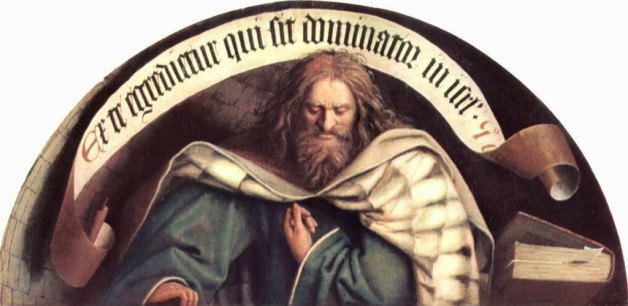“Because I went to Mass on Sunday and put my twenty bucks in the offering basket, and I’m basically a good person, God doesn’t need anything else from me. So we’ll leave each other alone until next Sunday.” It’s a common enough belief.
American Exceptionalism, which began as a religious idea and slowly shifted into something political, has today become a personal ideology. One of the foundations of the idea is that God made America special, and it is our duty to fulfill its destiny as a “new Jerusalem.” When this “exceptionalism” is boiled down and appropriated by individuals, it becomes a warped and twisted individual elitism. It moves from “We have a responsibility to cultivate our homeland and contribute to the freedom and welfare of the people” to “I have the right and authority to do what I want because I’m special and this is a free country.” In the face of our tendency toward personal exceptionalism, today’s reading from the prophet Micah presents us with a compelling question:
With what shall I come before the LORD, and bow before God most high? (Micah 6:6a)
The reluctance to give at a personal cost, married to a certain self-righteousness and a desire to live without—or even to deny—our debts, is not so benign as to leave the moderate Christian mind unaffected. Personal exceptionalism or individual elitism can also manifest itself in a Christian context. Man can begin to believe that because he is “born free,” he does not owe anything to God, but can “chip in” if he feels so inclined. The more insidious extension of that idea is that because he has elected to “chip in,” God is now the one who owes him!
Another strain of Christian individual elitism is the belief that man can attain his own salvation on his own terms, a kind of Pelagianism or Semipelagianism: “Why do I need the Church or a priest? God isn’t going to deny me Heaven—I believe in Him. Look at all the good things I do. That’s what He wants, isn’t it?” A variation on this type might occur after suffering tragedy or loss, where due to one’s obvious excellence or God’s seeming silence, communication between God and man is seen as unnecessary or even unwelcome. These are easy traps to fall into, and once fallen into, tend to compound. When we forget that we are born debtors and remain so until death, we lose our sense of gratitude and a sense of entitlement takes its place.
When we do feel inclined to offer something to God, it can seem overwhelming. Whatever we give will not be enough, so why bother?
Shall I come before him with burnt offerings,
with calves a year old?
Will the LORD be pleased with thousands of rams,
with myriad streams of oil?
Shall I give my first-born for my crime,
the fruit of my body for the sin of my soul? (Micah 6b-7)
As St. Thomas Aquinas notes (ST II-II.106.6), “gratitude regards the favor received according to the intention of the benefactor,” and “gratitude always inclines, as far as possible, to pay back something more.” Further, “the debt of gratitude flows from charity, which the more it is paid the more it is due.” Therefore, as St. Thomas concludes, “it is not unreasonable if the obligation of gratitude has no limit.” If this is true concerning human benefactors, think about how much more our debt of gratitude to God must have no limit!
The Eastern Christian “Jesus Prayer,” Lord Jesus Christ, Son of God, have mercy on me, a sinner, recited constantly throughout each day, is a reminder that we run a constant tab of debt to God. Like the prayer of the tax collector in the parable (Luke 18:13–14), it is a constant reminder of one’s own fallen nature, and that we are not capable of paying this tab ourselves, regardless of the kind or number of good works that we do.
This is why the Son’s becoming man and dying was necessary. Before Christ, it was impossible for man to offer a gift to God that was a fitting payment for sin; but now we offer the Sacrifice of God’s own Son, which is the only fitting payment for our sin. Further, we cannot give God something He doesn’t have, nor can we give Him something that He did not give or make available to us. Neither can we give or do anything on our own that would earn merit, though His gifts do merit our gratitude and obedience.
We cannot see the entirety of God’s plan for our lives. When hardship strikes, we must remember: God does not abandon His children. He may give us situations in life which challenge us for our betterment or prevent or correct us from wandering into error, but despite seeming silence, He never leaves us alone. His unrelenting love and grace are free gifts to us. How shall we show Him our gratitude? With what shall we come before the Lord and bow before God most high?
You have been told, O man, what is good,
and what the LORD requires of you:
Only to do the right and to love goodness,
and to walk humbly with your God. (Micah 6:8)
✠
Image: Hubert and Jan van Eych, The Prophet Micah, from the Ghent Altarpiece







